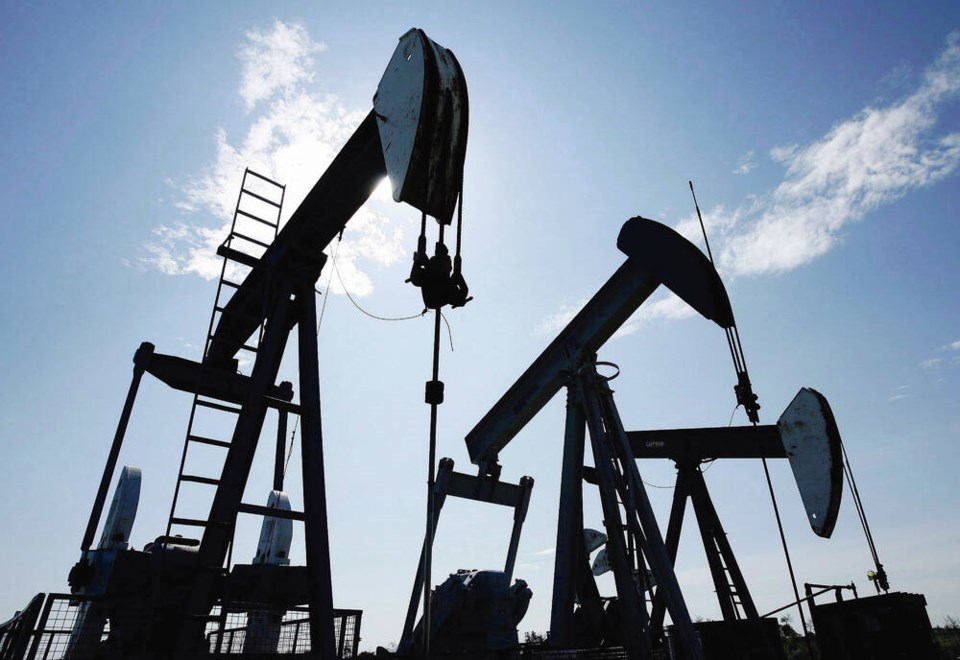Last week, I discussed “natural” carbon bombs: human-induced changes in natural systems (such as permafrost thawing, deforestation and loss of peatlands and marshes) that have the potential to result in rapid and large releases of greenhouse gases, or equally rapid and large losses of the carbon sinks that remove carbon from the air.
This week, I examine what might be called “industrial” carbon bombs — fossil-fuel extraction projects, specifically those that will release at least one billion tons of CO2 over their lifetimes.
In an important May 11 report, The Guardian noted: “Oil and gas majors are planning scores of vast projects that threaten to shatter the 1.5°C climate goal. If governments do not act, these firms will continue to cash in as the world burns.”
The report is largely based on a study led by Kjell Kühne of Leeds University and published in Energy Policy. The study found there are 425 such projects around the world — 230 are coal mines and 195 are oil and gas fields, many already producing, but with 40 per cent yet to start extraction.
Between them, these 425 projects accounted for 25 per cent of global coal production and 45 per cent of global oil and gas production in 2019.
Altogether, they will emit 1,182 billion tonnes of CO2 over their lifetimes. This will almost triple the 400 billion tonnes of allowable CO2 emissions from 2020 onwards if we are to keep the global temperature rise to under 1.5°C. In fact, these projects alone are more than enough to reach the 1,150 billion tonnes limit on emissions needed to stay below a 2°C rise.
Ninety-three of the coal mines and 76 of the oil and gas projects were not producing in 2020, meaning they could and should be cancelled before they entered production (although doubtless some have begun producing by now).
For those already in production, Kühne and his colleagues propose they be put in “harvest mode,” allowing them to decline naturally by not investing any more money in them. They call this overall approach “defusing” the carbon bombs
Canada, with 12 carbon bombs that could add 39 billion tonnes of CO2 to the atmosphere, is the seventh largest carbon bomber, behind China, the United States, Russia, Saudi-Arabia, Australia and Qatar.
The Guardian notes that together with the U.S. and Australia, Canada is “among the countries with the biggest expansion plans … the highest number of carbon bombs” and also gives “some of the world’s biggest subsidies for fossil fuels per capita.”
A list of Canada’s carbon bombs on the Leave it in the Ground website (an NGO co-founded by Kühne) shows they are all in B.C. or Alberta.
The largest by far is the Montney Play oil and gas field in Alberta and B.C., which is projected to produce 13.7 billion tonnes of CO2 over its lifetime, followed by the Murray River Coal Mine in Tumbler Ridge (8.5 billion tonnes) and the Spirit River oil and gas field in Alberta and B.C. (3.0 billion tonnes).
Other B.C. carbon bombs include the Gething Coal Mine Coal (2.1 billion tonnes), the Liard Shale oil and gas field (1.2 billion tonnes) and Fording River Coal (1.0 billion tonnes).
Not included in the list is the newly approved Bay du Nord oilfield off the coast of Newfoundland. While not strictly a carbon bomb — it’s estimated 300 million to 1 billion barrels of oil would result in 130-430 million tonnes of CO2 emissions when consumed — it is nonetheless a sign that the Canadian government does not get it and does not care.
Indeed, that was the focus of a powerful speech from Saanich-Gulf Islands Green MP Elizabeth May last week in Parliament, in which she accused the minister of Environment and Climate Change of losing his moral compass by approving Bay du Nord and supporting the TransMountain expansion.
At a time when the World Meteorological Organization is reporting that several global climate indicator records were set in 2021, this is the worst possible time to be approving new carbon bombs and supporting existing ones with subsidies and other supports.
In fact, Canada and B.C. need to defuse their carbon bombs as soon as possible. To fail to do so is morally reprehensible.
Dr. Trevor Hancock is a retired professor and senior scholar at the University of Victoria’s School of Public Health and Social Policy.



